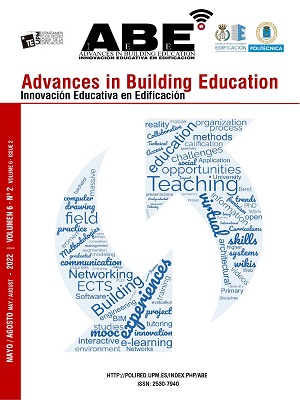Teacher assignment in rural regions of Azerbaijan
DOI:
https://doi.org/10.20868/abe.2022.2.4941Resumen
Large number of unfilled teaching positions in rural regions is a common problem in most of the countries, including Azerbaijan. In this paper, we try to identify factors affecting preferences of teachers on workplace and thus, the reasons for not choosing schools in rural areas and propose an incentive mechanism to reduce number of unfilled vacancies in these regions of Azerbaijan. To understand the factors affecting student preferences, we
surveyed around 2000 junior students majoring in various education programs in different universities. Based on the survey results, we identify the factors affecting the decisions of the prospective teachers and the barriers
that keep them away from choosing schools in rural areas. Based on our findings, we propose an incentive mechanism to fulfil the vacancies in rural area schools.
Descargas
Referencias
Z. A. Barley, "Preparing teachers to teach in rural schools", Issues and answers, 1-21, 2008.
C. Boylan, R. Sinclair, A. Smith, D. Squires, J. Edwards, A. Jacob, B. Nolan, "Retaining teachers in rural schools: satisfaction, commitment, and lifestyles." In C. Boylan, & M. A. (Eds.), Rural Education Issues: An Australian Perspective. Wagga Wagga: SPERA, 1993. https://doi.org/10.1080/10371656.1993.11005082
Bradley, "States' uneven teacher supply complicates staffing of schools", Education Week, 10-11, 1999.
T. Collins, "Attracting and retaining teachers in rural areas", Clearinghouse on. ERIC Clearinghouse on Rural Education and Small Schools, 1-7, 1999.
N. Downes, P. Roberts, "Staffing rural, remote and isolated schools in Australia: A review of the research literature 2004-2016", Technical Report, 2017
S. Frid, M. Smith, L. Sparrow, S. Trinidad, "An exploration of issues in the attraction and retention of teachers to non-metropolitan schools in Western Australia", Education in Rural Australia, 20-29, 2008.
B. Green, J.-A. Reid, "Teacher education for rural-regional sustainability: Changing agendas, challenging futures, chasing chimeras?" Asia-Pacific Journal of Teacher Education, 256-273, 2004. https://doi.org/10.1080/1359866042000295415
B. Handal, K. Watson, P. Petocz, M. Maher, "Retaining mathematics and science teachers in rural and remote schools", Australian and International Journal of Rural Education, 13-28, 2013.
B. Handal, K. Watson, P. Petocz, M. Maher, "Choosing to Teach in Rural and Remote Schools:The Zone of Free Movement", Education Research and Perspectives, 1-32, 2018.
J. Haynes, J. Miller, "Transitioning from university to teaching in schools located in rural and remote settings", Australian and International Journal of Rural Education, 34-48, 2016.
R.R. Holden, "Socially desirable responding does moderate personality scale validity both in experimental and in non-experimental contexts", Canadian Journal of Behavioral Science, 39, 184-201, 2007. https://doi.org/10.1037/cjbs2007015
R. Ingersoll, "Teacher turnover and teacher shortages: An organizational analysis" American Educational Research Journal, 499-534, 2001. https://doi.org/10.3102/00028312038003499
K. Jenkins, P. Reitano, N. Taylor, "Teachers in the bush: Supports, challenges and Australia, 71-85, 2011.
K. Jenkins, N. Taylor, P. Reitano, "Listening to teachers in the 'bush. In L. Graham, & J. Miller (Eds), Bush Tracks", The Opportunities and Challenges of Rural Teaching and Leadership (pp. 41-55). The Netherlands: Sense Publishers, 2015. https://doi.org/10.1007/978-94-6300-097-0_4
J. Kline, B. Walker-Gibbs, "Graduate teacher preparation for rural schools in Victoria and Queensland", Australian Journal of Teacher Education, 68-88, 2015. https://doi.org/10.14221/ajte.2014v40n3.5
G. Lock, F. Budgen, R. Lunay, G. Oakley, "Welcome to the outback: The paradoxes of living and teaching in remote Western Australian Schools", Australian and International Journal of Rural Education , 117-134, 2012.
T. Lyons, "Teachers' motivations for working in rural schools. Improving equity in rural education" Proceedings of the International Symposium for Innovation in Rural Education (ISFIRE), 167-177, 2009.
T. Lyons, R. Cooksey, D. Panizzon, A. Parnell, J. Pegg, "Science, ICT and mathematics education in rural and regional Australia" The SiMERR National Survey. The University of New England, 1-62, 2006.
T.W. Maxwell, H. Smith, D. Baxter, J. Boyd, I. Harrington, K. Jenkins, ... L. Tamatea, "Migrating to the Classroom: Online Support for the 2005 Beginning Teacher Alumni of UNE", Final Report for the Higher Education Innovation Program of the Education Alumni Support Project. University of New England, 2006.
C. McConaghy, L. Graham, D. Bloomfield, J. Miller, D. Patterson, L. Lloyd, . . . G. Noone, "'Bush Tracks': Exploring rural teaching transitions", Education in Rural Australia, 3-11, 2006.
P. McKenzie, P.R. Weldon, G. Rowley, M. Murphy, J. McMillan, "Staff in Australia's schools 2013: Main report on the survey" Australian Council for Educational Research, 1-181, 2014.
R.L. Miles, C. Marshall, J. Rolfe, S. Noonan, "The Attraction and Retention of Professionals to Regional Areas", Australasian Journal of Regional Studies, 128-152, 2004.
Mulkeen, "Teachers for rural schools: A challenge for Africa", Association for the Development of Education in Africa (ADEA), 1-33, 2005.
National Association of State Boards of Education, "The numbers game: Ensuring quantity and quality in the teaching workforce", Alexandria, VA: Author, 1998.
Nelson Mandela Foundation, "Emerging voices: A report on education in South African rural communities", Cape Town: HSRC Press. 2005
D. Panizzon, M. Westwell, K. Elliott, "Who's teaching science in South Australia?" Flinders Centre for Science Education in the 21st Century, 2009.
E. Ralph, "Teaching in rural schools: a synthesis of intern and cooperating teachers views", Rural Educator, 15-22, 2002.
G. Ramsey, "Quality Matters. Revitalizing teaching: Critical times, critical choices", Review of Teacher Education, 2000.
P. Roberts, "Staffing an Empty Schoolhouse: Attracting and Retaining Teachers in Rural, Remote and Isolated Communities", Surry Hills, NSW : NSW Teachers Federation, 2005.
U.M. Sedere, "Policy Concerns Relating to Teacher Recruitment and Deployment in Malawi." Education Sector Planning Policy Discussion Papers. Teacher Education Policy Position Papers.
Paper# 1, 2005. [31] A. Shanker, "Choosing teachers and choosing to teaching. Teachers supply, demand and quality", Washington: DC: National academy press, 1992.
E. Sharplin, "Rural retreat or outback hell: Expectations of rural and remote teaching", Issues in Educational Research, 49-63, 2002.
M. Somerville, M. Plunkett, M. Dyson, "New teachers learning in rural and regional Australia", Asia-Pacific Journal of Teacher Education, 1-17, 2010. https://doi.org/10.1080/13598660903474130
S. Trinidad, E. Sharplin, G. Lock, S. Ledger, D. Boyd, E. Terry, "Developing strategies at the pre-service level to address critical teacher attraction and retention issues in Australian rural, regional and remote schools. SPERA, 2010.
T. Vinson, "Inquiry into public education in New South Wales", Annandale, N.S.W. : Pluto Press, 2002.
Wallace, C. Boylan, "Reawakening education policy and practice in rural Australia", Society for the Provision of Education in Rural Australia, 1-19, 2007.
A.E. Wise, L. Darling-Hammond., B. Berry, D. Berliner, E. Haller, A. Praskac, P. Schlechty, "Effective Teacher Selection:From recruitment to retention-Case studies", The RAND Corporation, 1-220, 1987
Descargas
Publicado
Número
Sección
Licencia
ABE (Advances in Building Education / Innovación Educativa en la Edificación) no aplica cargo alguno a los autores por procesar o publicar un artículo y provee acceso abierto (Open Access) inmediato a su contenido. Todo el contenido está disponible gratuitamente sin cargo para el usuario o su institución. Se permite a los usuarios leer, descargar, copiar, distribuir, imprimir, buscar o vincular a los textos completos de los artículos, o utilizarlos para cualquier otro propósito lícito, sin pedir permiso previo del editor o el autor. Esto está de acuerdo con la definición de acceso abierto de la BOAI.
1. Los autores conservan los derechos de autor y garantizan a la revista el derecho de una Licencia Creative Commons Atribución / No Comercial / No Derivadas 4.0 Internacional (CC BY NC ND) que permite a otros compartir el trabajo con un reconocimiento de la autoría y uso no comercial.
2. Los autores pueden establecer por separado acuerdos adicionales para la distribución no exclusiva de la versión de la obra publicada en la revista (por ejemplo, situarlo en un repositorio institucional o publicarlo en un libro).
Salvo indicación contraria, todos los contenidos de la edición electrónica se distribuyen bajo una licencia de uso y distribución “Creative Commons".














